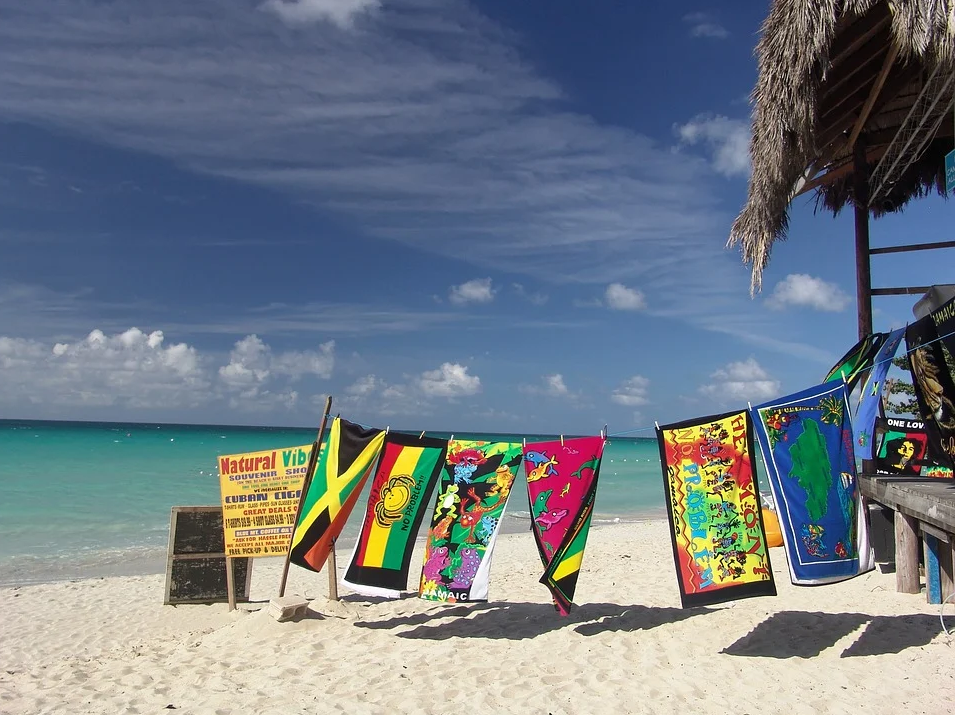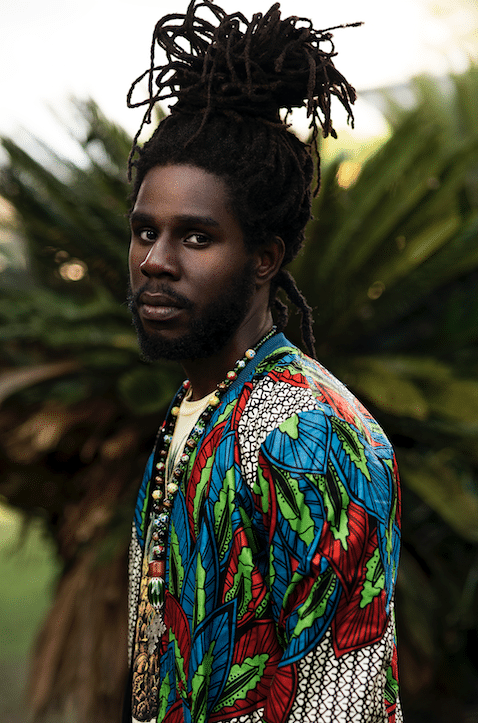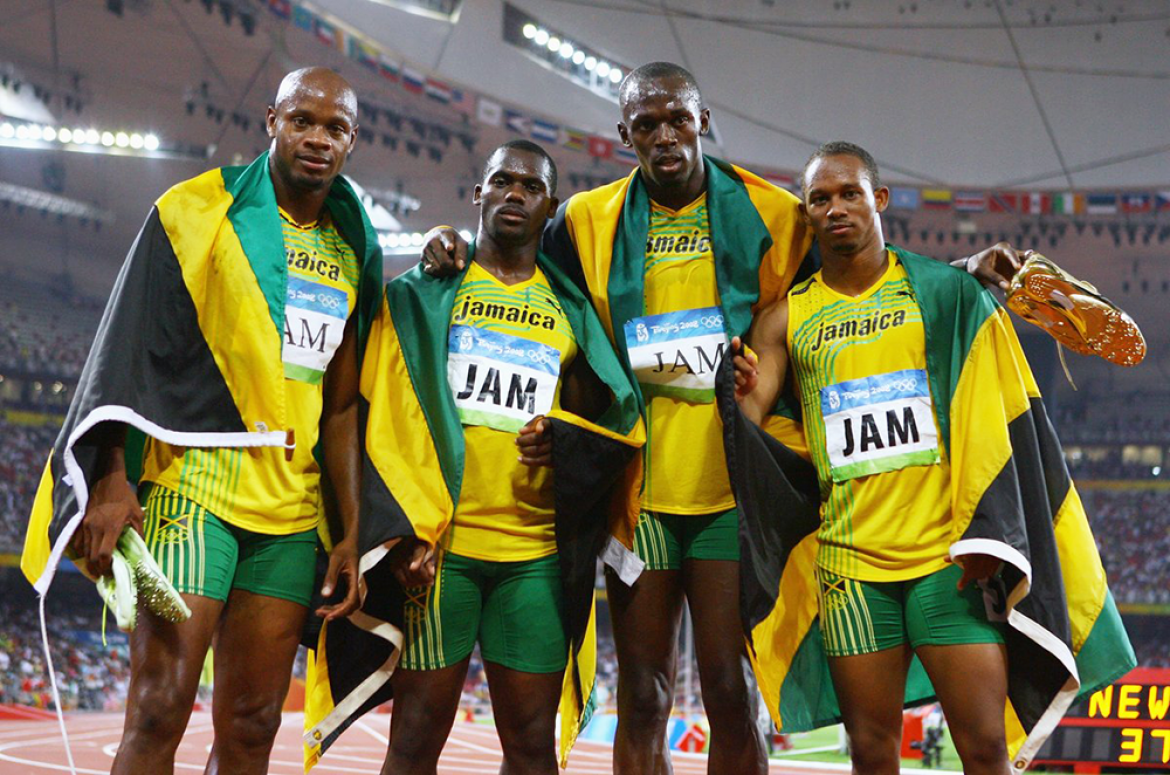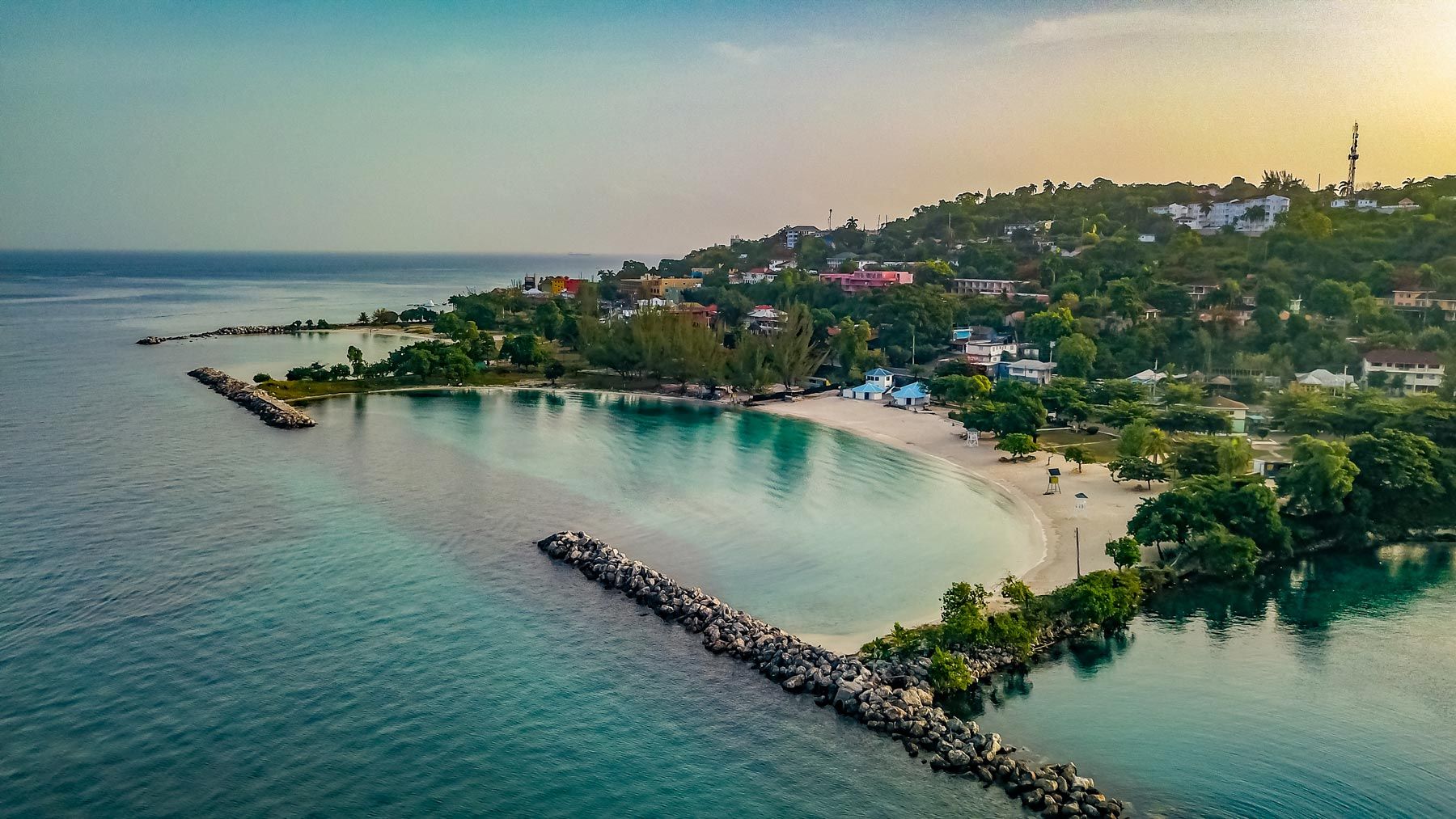
A Conversation with Ms. Antoinette Anderson (2020 MPM): Jamaica
- Date 2021-03-05 06:45
- CategoryStory
- Hit1963
Ms. Antoinette Anderson Rosemarie (2020 MPM) is the quintessential witty, calm and bubbly lady that every person will long to have as a friend. She has done 16 years of civil service in the taxation field. With a striking gift of the gab, one will agree that God strategically placed her in this position to do a job that many will find it hard to. That is to convince people to pay taxes. She works for Tax Administration Jamaica (TAJ). TAJ is Jamaica’s revenue collecting agency, housed under the Ministry of Finance and planning.

Her country Jamaica needs no introduction. Tucked in the Caribbean sea, the country is known for its dominance in music and short-track athletics. Its lush topography of mountains, rainforests and reef-lined beaches attracts a lot of tourists. Jamaican Patois, a lilting slang spoken by its citizens is nice to listen to.
We met and had the following conversation.
 Jamaica, Source: https://pixabay.com/
Jamaica, Source: https://pixabay.com/
Tell us about yourself.
I am a Tax Education officer at the Tax Education Unit of the Tax Administration Jamaica. My job is to teach citizens about taxation. We go around schools, tertiary institutions, SMEs’ forums, expos, and what have you, to educate the common citizen about the rudiments of taxation and their role in tax payment.
I did a Bachelor’s in Education at The Mico University College, and Management Information Systems at University College of The Caribbean. I am currently enrolled for a Master of Public Management at KDI School of Public Policy & Management.
Tell us a bit about the Tax Administration Jamaica (TAJ) and the Taxpayer Education Unit.
Tax Administration Jamaica(TAJ) was established on April 1, 2011 by the revenue administration amendment Act 2011, consolidating activities of the former Inland Revenue Department , Taxpayer Audit and Assessment Department, and Tax Administration Services Department. The four divisions used to operate as separate entities prior to 2011. The agency’s mandate is to collect domestic taxes payable in accordance with the law, facilitate voluntary compliance and to implement tax laws & policies introduced by the Ministry of Finance & Planning.
Speaking of reforms, the changes made in 2011 brought about a paradigm shift. Before, approaches to compliance were a bit draconian. The taxation entities would impose fines and penalties, and give sanctions to citizens if taxes had not been made on time. With the reforms came a cooperative compliance approach. Well, cooperative compliance fosters relationships. With that the role of the Taxpayer Education Unit came in handy, bridging the information gap between the taxpayer and the tax collector. When we go around teaching people about taxation, we help them to better understand the impact that their taxes have in nation building. This has built the level of trust and raised the overall compliance.
Also, upgrading to e-platforms and digital ways of public service delivery was part of the 2011 reforms.
How significant has that leap to digital platforms for public service delivery been to Jamaica’s taxation system?
Before restructuring, the system was pretty slow. We did things manually, storing tax return files in piles of boxes and therefore locating these files would prove hard later on. Stacking piles and piles of paper was counter productive and time consuming. After 2011, the transformation was huge. With the click of a mouse or touch of a button, it was easy to access records. Bureaucracy was reduced.
The transformation played a huge role in improving compliance. The flow of information between the TAJ and citizens was increased due to online service channels and the e-services rendered. As a tax payer, having created an online account you would be able to log-in and see your records. If your returns were not filed properly, you would instantly see and make a prompt and informed action. With any queries you would still reach out to us using the same platform.
How has the Taxpayer education initiative within the TAJ improved the general citizen compliance and how significant is it to any taxation system?
Taxation is never the easiest thing to do. For some reason, a lot of people will recent taxation for reasons known to themselves or because of all these perceptions we tend to have against the tax man. To be fair though, some of these notions are uninformed. As a citizen you hold certain social responsibilities for your country and paying taxes is one. In being responsible you have to know your responsibilities as a taxpayer and how to meet these particular responsibilities. That said, you cannot blame the citizen entirely for failing to know this. People in most societies are likely to be under-informed on taxation matters. That is why having in place an educative channel can help to address this challenge. In my country, through the Taxpayer education unit, we have reached a lot of people and made information available. While at it, we ensure that information is broken into easily digestible chunks and is tailored to specific audiences in tandem with their comprehension levels. That way, it is easy to pass the information to each and every citizen without leaving anyone out. We go to primary schools, high schools, vocational training institutions, and tertiary institutions. We visit professionals’ forums, business persons, expos and many other platforms that can bring us close to citizens. Sometimes, we set up our own events and invite people.
As a result, the compliance rate has gone up. Our relationship with citizens has also been growing by day.
Let us change the script now and hop onto music. Just to let you know, Jamaican music is huge in my country and so is it in other countries. Clubs, restaurants, Public Service Vehicles, you name it, play it a great deal! From reggae, ska, mento, dancehall, ragga to riddims. How surprised are you when you get to hear this? Which Jamaican artistes are you into?
 Chronixx, Source: https://echolocationtalent.com/
Chronixx, Source: https://echolocationtalent.com/
How surprised am I? I am humbled. When you are in Jamaica you tend to take it for granted. You do not see the gravity of it until you go out. It is one thing to read about or watch on TV the love other people have for Jamaican music and another thing to meet them in person and hear them gush or share how Jamaican music is received in their country. It is a humbling experience. I feel proud to be Jamaican. In Jamaica music is the culture. Literally. We appreciate the love other people show towards this culture.
Chronnix is one of my favorite Jamaican artists. People call him the Bob Marley of today and quite fittingly because he is very solid in the message he puts out there. And to do this at such a young age it is quite inspiring. I love that he is using his talent to impact the world in such a positive way. In addition to Chronnix, I love Beenie man’s music, Buju Banton, Shaggy, and Lady SAW. I love Lady Saw not so much because of her music but how she redefined the role of women in Jamaican music. She showed that women, despite keeping it low, could also express themselves.
Given that Jamaican music is huge, what has the government done to benefit from its influence?
The government has tried to emphasize a lot more on entertainment and sports, having designated them as key agenda areas in the Ministry of Culture, Gender, Entertainment and Sport. This ministry has tried to come up with innovative ways to see how we can benefit from this brand, that is our music. There is the Jamaican Intellectual Property Office (JIPO), which deals with the intellectual rights of our entertainers and athletes. When you talk about Bob Marley pictures being all over your place and you are making money from it, we ought to benefit from that too. JIPO was established to collect these royalties anywhere in the world where our music happens to be used.
The government also gets to earn foreign income from tourists who flock our country during those huge summer music festivals.
Just like my country Kenya, Jamaica is known for its stellar performance in international athletics, albeit for short track. We have had huge names come out of the country, talk of Shelly-Ann Fraser, Asafa Powell, Usain Bolt, etc. How is athletics like in your country?
 Usain Bolt, 2nd from right with team mates, Source: http://www.teamja.org/
Usain Bolt, 2nd from right with team mates, Source: http://www.teamja.org/
To us, running is normal. We do it everywhere and we actually do it for fun. At the primary level we tend to have children competing against each other in a number of activities. From high jump, long jump to sprints. At high school level, the same happens. In high school we get to have formal boys and girls championships. It is like a transitioning. It is here where talents are scouted. Proceeding, talents are either recruited into universities overseas or into local clubs where they are subjected to high quality training, are nurtured and are slowly ushered into professional athletics.
I get goosebumps whenever our athletes win on the global stage and see our flag raised. I remember back in the 2008 Beijing Olympics when Usain Bolt won 3 gold medals. He inspired other athletes too and we went on to win a lot of medals. We beat the USA in sprint. It was exciting. You would see Jamaican flags everywhere! And getting to listen to the national anthem being played, it was magical.
You know what, Usain Bolt went to a high school that is located in the community I lived in while growing up!
Tourism is Jamaica’s largest highest foreign exchange earner. What draws people to Jamaica/what am I to expect if I visit?
In addition to the summer music festivals, Jamaica has some really nice beaches that foreigners and locals frequent. From the Negril area, Montego Bay, Portland, to St. Ann parish area, the list is endless. Our country has some of the best beaches you will ever find in the Caribbean.
Keeping in mind that different people have different inclinations, there are those that visit the blue mountains to hike or camp, and have uninterrupted time with nature. There is so much more for visitors to explore in Jamaica.
There is the Bob Marley museum in Kingston. It is not a museum per se but a hive for persons who would want to get closer to Bob Marley.
If you are the historian kind, we have galleries in Kingston. If you want to check out the history of Rastafarian, there is the bobo hill and an indigenous Rastafarian village in Montego bay.
 Aqua-Sol-Theme-Park-Montego-Bay-Jamaica, Source: Travelling Thilo/Shutterstock.com
Aqua-Sol-Theme-Park-Montego-Bay-Jamaica, Source: Travelling Thilo/Shutterstock.com

